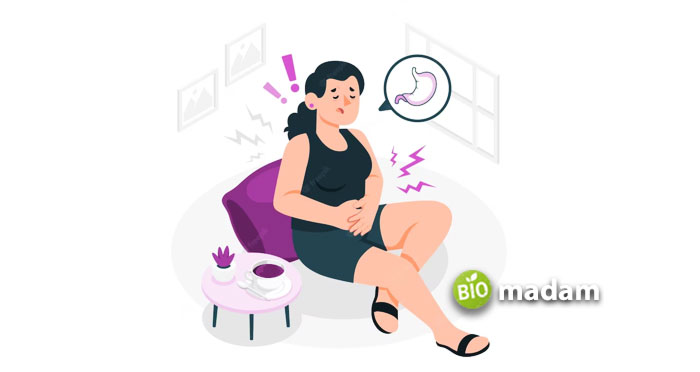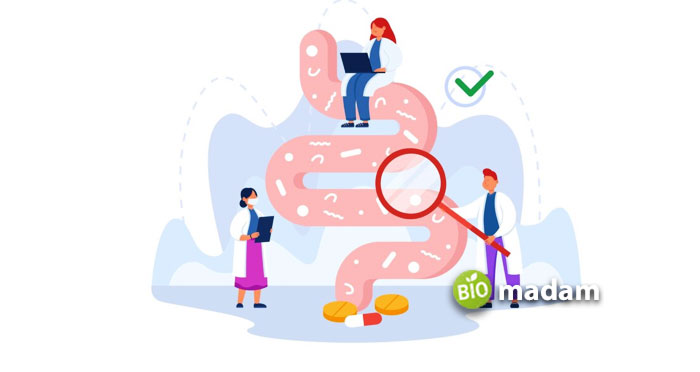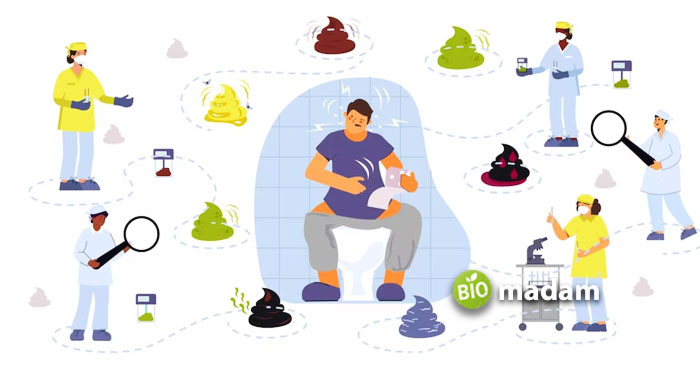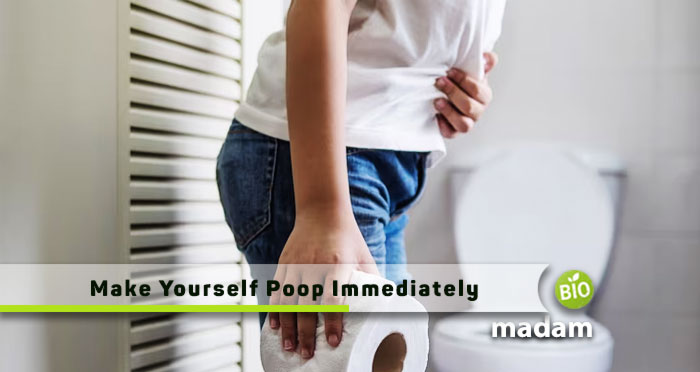Are you having trouble with your bowel movements? No need to worry! This article will help you solve this problem.
When it comes to bodily functions, bowel movements are an essential part of maintaining overall health and well-being. However, many people experience difficulty with their bowel movements, whether it’s due to constipation, stomach discomfort, or simply feeling the need to go. If you’re struggling to make yourself poop, you’re not alone. Fortunately, there are several tips and tricks that will help you excrete out and feel relaxed.
While occasional irregularity is common, it’s important to note that chronic constipation can lead to serious complications, such as hemorrhoids, anal fissures, and even fecal impaction. Therefore, it’s essential to maintain regular bowel movements to avoid these potential complications. This article will provide you with a variety of strategies to help you relieve constipation, so you can stay healthy and avoid any uncomfortable or embarrassing situations. By incorporating these tips into your daily routine, you can promote regular bowel movements and avoid the discomfort and complications associated with it.
What is Constipation?
Constipation refers to a medical condition characterized by either infrequent bowel movements or difficulty in passing stool. It’s characterized by having fewer than three bowel movements a week, passing hard and dry stools, and experiencing discomfort or straining during bowel movements. Constipation can be a temporary or chronic condition, and it can affect people of all ages.
Common causes of constipation include a lack of fiber in the diet, inadequate water intake, a sedentary lifestyle, certain medications, and medical disease or conditions such as irritable bowel syndrome (IBS) and hypothyroidism. Constipation can also be a side effect of surgery or other medical treatments.

How to Make Yourself Poop Immediately: Tips and Tricks
Here are some tips and natural remedies that you can follow to make yourself poop immediately.
Drink Plenty of Water
Drinking plenty of water is essential for regular bowel movements The presence of water in the stool aids in its softening, thereby making it simpler to pass. Aim to drink at least eight glasses of water a day to help keep things moving.
Eat Fiber-Rich Foods
Fiber-rich foods can help regulate your digestive system and promote bowel movements. Foods such as fruits, vegetables, and whole grains are excellent sources of fiber. Examples include berries, apples, spinach, beans, and brown rice.
Exercise Regularly
Physical activity, such as exercising regularly, can help stimulate the digestive system and promote regular bowel movements. Even a brisk 10–15-minute walk can help get things moving. Make sure to engage in regular physical activity to help keep your stomach, small and large intestine, functioning optimally.
Try a Warm Beverage
Drinking a warm beverage can help stimulate the digestive system and encourage bowel movements. Try drinking hot water with lemon or ginger tea to help get things moving. Both assist in soothing the stomach and promote regular bowel movements.
Use the Bathroom when you Feel the Urge
Ignoring the urge to use the bathroom can lead to constipation and make it harder to poop later on. When you feel the urge, make sure to use the bathroom as soon as possible. Holding in your poop can cause it to become more compact and harder to pass.
Consider Using a Stool Softener
If you’re experiencing discomfort or constipation, a stool softener can help make it easier to pass stool. Speak with your healthcare provider to determine if this is a good option for you. The function of stool softeners is to enhance the water content in the stool, thus facilitating the easier passage of stool.

Use Probiotics
Probiotics refer to live microorganisms that can offer numerous health benefits when consumed in sufficient quantities. These microorganisms can be obtained from fermented food items, such as sauerkraut, kefir, and yogurt, as well as from supplements.
Probiotics are believed to ease constipation by balancing the population of beneficial bacteria in the digestive tract. This balancing can contribute to healthy digestion and better bowel movement regulation. Additionally, probiotics may reduce transit time and facilitate stool softening by increasing the production of short-chain fatty acids, which can prompt intestinal muscles’ contraction.
Relax
Stress and anxiety can harm your digestive system. Try to relax and breathe deeply to help relieve any tension that may be affecting your bowel movements. Consider engaging in activities such as yoga or meditation to help manage stress and promote relaxation.
Use a Squatty Potty
The Squatty Potty is a device designed to help align your body in a way that promotes more effective bowel movements. It can be a helpful tool for those who have difficulty passing stool. The device elevates the legs, putting the body in a more natural squatting position, making it easier to pass stool.
Drink Coffee
Drinking coffee may help alleviate constipation in some individuals. This is because coffee contains caffeine, which is a stimulant that can help promote bowel movements by increasing muscle contractions in the colon.
However, it’s important to note that while coffee can have a beneficial effect on some people’s bowel movements, it can also harm others. In some individuals, coffee may worsen constipation or cause other gastrointestinal signs or symptoms, such as bloating or diarrhea. Additionally, it’s important to consume coffee in moderation, as excessive caffeine intake can lead to dehydration, which can exacerbate constipation.
Use Suppository
Suppositories are small, bullet-shaped medications that are inserted into the rectum to relieve constipation. They are often recommended for individuals who are experiencing difficulty passing stool or who have not had a bowel movement for several days.
Suppositories work by stimulating the muscles in the rectum and colon, which can help to produce a bowel movement. They may also help to soften and lubricate the stool, making it easier to pass.
Use Enema
An enema is a medical procedure that involves injecting a liquid solution into the rectum and colon to help stimulate a bowel movement. It is typically used for individuals going through severe constipation or as a preparation for medical procedures such as a colonoscopy.
Enemas work by softening and lubricating the stool, as well as by stimulating the muscles in the rectum and colon to produce a bowel movement. They are usually administered using a bulb syringe or an enema bag and can be performed at home or in a medical setting.
Consult with Your Doctor
It is recommended that if you frequently suffer from constipation, you should consult with your primary care physician. They will definitely guide you in identifying the underlying cause of your problem and guide how to make bowel movements easier and less challenging. Consider consulting your doctor when you experience the following symptoms:
- Blood in stool
- Fever
- Vomiting
- Weight loss
- Abdominal pain
Some Other Tips to Relieve Constipation
Here are some other tips to relieve constipation:
- Try squat position
- Massage colon
- Use a laxative
- Have healthy fats
- Correct your posture
- Eat kiwi

How to Relieve Constipation in Children?
In kids, constipation means having less than two bowel movements per week. This can result in hard stools that are hard to pass, similar to constipation in adults. Around 3 percent of children globally are believed to suffer from “functional constipation,” meaning there is no underlying cause for their constipation. If your child is experiencing constipation, you can assist them by promoting regular exercise and increasing their intake of water and other fluids.
Toilet-trained young children may find it helpful to have daily bathroom sessions that last between 5 to 10 minutes, preferably after a meal. If there is no improvement in your child’s condition after a week, it is best to seek advice from a pediatrician. Other symptoms in children with constipation that require urgent medical attention can include diarrhea, weight loss, fever, and abdominal distension.
How to Relieve Constipation During Pregnancy?
Constipation is a frequent occurrence during pregnancy, particularly in the third trimester. It may also happen soon after delivery. According to a study, ‘Constipation in Pregnancy: A Review of the Literature’ by Kinnunen T, et al., 2019, it is suggested to increase fluid and fiber intake, make habit of regular exercising, and use of stool softeners to relieve constipation during pregnancy.
Conclusion
There are several ways to make yourself poop immediately. Drinking plenty of water, eating fiber-rich foods, exercising regularly, using the bathroom when you feel the urge, and relaxing are all effective strategies. If you continue to have difficulty with bowel movements, speak with your healthcare provider to determine if there may be an underlying medical issue that needs to be addressed. By taking steps to promote regular bowel movements, you can help keep your digestive system functioning optimally and avoid discomfort and complications associated with constipation.

Meet me; I am Paulina Zaniewska, who’s more hooked on providing the best health blog. I’ve always been so determined to compete as a nutritionist, and here I am, done with a Master’s in food technology. My brilliant performance throughout encouraged me to help people.

